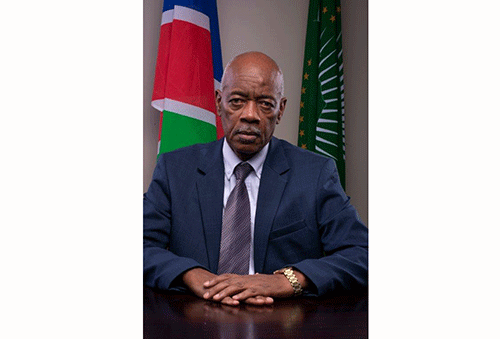On 13 April 2023, one of Africa’s finest brains, Julius Kambarage Nyerere would have turned 101 years old; had he been alive. In Tanzania he is still revered as both Mwalimu (teacher) and Baba wa Taifa (Father of the Nation).
In October 1999, I was attending an international conference in Durban, South Africa. The key-note speaker who was billed to open that conference was none other than Mwalimu Nyerere. I was looking forward to meeting him in person; since I had never met him before. However, as fate would have it, news reached us at the conference that Nyerere had died. A Tanzanian delegate at the conference whispered to me that they had to fly Nyerere to London for treatment against his own will. He was reasoning that Tanzania was too poor to take him to London for treatment; it was only when he was too weak to resist that they managed to fly him to London for treatment, where he died.
Nyerere was born on 13 April 1922 at Butiama, Tanzania, to a local chief. He was educated at Makerere University in Uganda and later at Edinburgh University in Scotland.
Nyerere played a key role in the creation of the Tanganyika African National Union (TANU) in 1954 that led the struggle for independence in Tanganyika. After the independence of Tanganyika in 1961, Nyerere served as Prime Minister (1961 – 1962).
In 1964, Tanganyika and Zanzibar came together to create the United Republic of Tanzania under Nyerere as president. He served from 1964 – 1985. In 1977, TANU was transformed to Chama Cha Mapinduzi (CCM) - meaning revolutionary party in English. He served as chairperson of CCM (still the current ruling party) until 1990.
Nyerere’s vision for Tanzania was captured in the famous Arusha Declaration of 1967 of which the central pillars were national self-reliance and African Socialism or Ujamaa in KiSwahili. Given that more than 80% of the Tanzanian population were peasants, a lot of emphasis was put on agricultural development through communal cooperatives.
It is an open secret that Nyerere’s own children attended public schools like the children of ordinary workers and peasants. A few years ago, this author happened to rub shoulders with one of his sons, Madaraka Nyerere, who is the managing director of the Butiama Cultural Tourism Enterprise.
This is a museum of sorts dedicated to the preservation of Nyerere’s legacy and it is located at his home village, Butiama. Madaraka, just like his father, is a living embodiment of humbleness.
Nyerere also played a key role in the promotion of Kiswahili as the official language of Tanzania. This has helped a great deal in promoting national unity. Ethnicity has never been a major factor in the Tanzania body politic – thanks to the role of Kiswahili as a unifying factor.
Tanzania, under Nyerere, was also one of the Frontline States that actively supported liberation movements in southern Arica, specifically in Mozambique, Angola, South Africa, Zimbabwe and Namibia.
One of the contributions of Nyerere to the intellectual development of Africa was his translation of Shakespeare into Kiswahili. As one commentator put it, he did that not because he loved Shakespeare less, but because he loved Kiswahili more. The very effort of translating Shakespeare into Kiswahili, showed Nyerere’s belief in the richness of an African language.
In the seventies and eighties, the University of Dar es Salaam was a hive of intellectual debates which were later published as a book under the title The Great Debate at the Hill; the university campus is on a hill, and hence that reference.
Some of the intellectual giants that graced these debates were the likes of Walter Rodney (author of How Europe Underdeveloped Africa), Dan Nabudere, Mahmood Mamdani, John Saul, Issa Shivji, Nathan Shamuyarira, Tamas Tzentes etc. The burning question at that time was, which path of development should Africa choose: capitalism or socialism. Other professors who were not resident there also participated in these debates, from time to time. These were people like Ali Mazrui, Ngugi wa Thiongo etc. President Musoveni of Uganda, Kagame of Rwanda and John Garang, former president of South Sudan, were also educated there. Nyerere, being a great advocate of African socialism and a refined scholar to his fingertips, did not shy away from debating these learned scholars on the burning issues of his times.
During the heyday of the Cold War polarisation (1947 – 1991) between the capitalist West and the socialist East, the global south organised themselves into the Non-Aligned Movement (NAM). The NAM was a conglomeration of developing countries, mainly from Africa, Asia and Latin America. This group of countries did not want to align themselves to any of the military blocks, neither to the Warsaw Pact countries (socialist block), nor to the North Atlantic Treaty Organisation (NATO), which represented the West. Nyerere was one of the leading voices when it came to the articulation of the interests of developing countries, both in terms of advancing their development agenda and supporting the liberation movements. nNyerere’s philosophy of education was that the educated individuals should not only serve the masses, but that they should regard themselves as part of the masses too.
Those who knew him well describe him as a man who was unassuming and who never drew attention to himself. Apparently because of his slim frame, if you did not know him, you would not easily pick him out from a crowd until he opened his mouth to speak; and when he did open his mouth to speak, then you would know for sure that “…. that must be Nyerere…”
Nyerere was an articulate and critical original thinker, an anti-colonial activist, a Pan Afrikanist and an accomplished statesman as well as a prolific writer of note. He left a deep legacy and “big shoes” that are difficult to fill.


